Emiliano Sala plane crash: Pilot's licence scrutiny
- Published
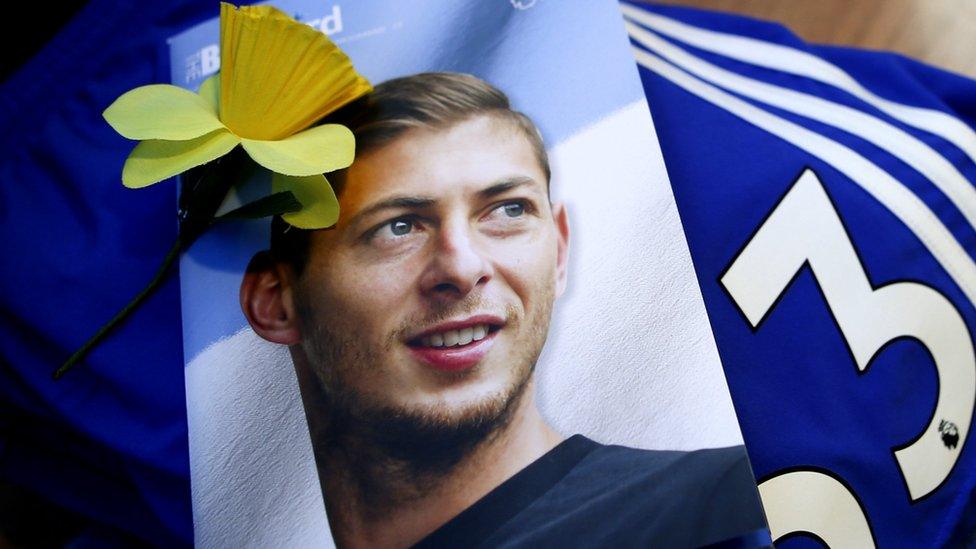
Emiliano Sala's body was found in the plane's wreckage
The pilot of the plane that crashed with Cardiff City striker Emiliano Sala on board did not have a licence for commercial flights, investigators say.
The Air Accidents Investigation Branch (AAIB) confirmed David Ibbotson held a private pilot's licence.
Its interim report, external said he could only fly passengers in the EU on a cost sharing basis, not for reward.
Cardiff City said it had "grave concerns" and questions over the validity of the pilot's licence.
Investigators have not yet been able to establish what arrangement Mr Ibbotson had with Sala, and the status of the 59-year-old's licence at the time of the crash on 21 January will form part of the AAIB's investigations.
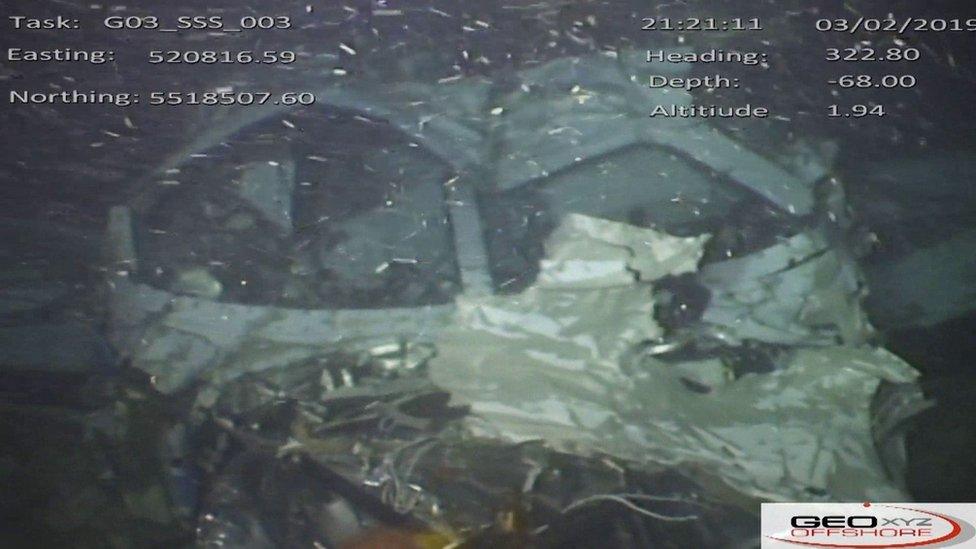
The wreckage was found in three parts on the seabed of the English Channel
Sala was found in the wreckage of the Piper Malibu N264DB, which was found on the seabed 13 days after it vanished over the English Channel near Guernsey.
He had completed his transfer to Premier League side Cardiff from French club Nantes just two days earlier - for a club record fee of £15m - and had returned to France to say goodbye to his former teammates.
Mr Ibbotson has not yet been found and his family hope a fresh search for his body will begin this week after setting up an online fundraising campaign which has raised £250,000.
The aircraft remains underwater off the coast of Guernsey after an attempt to recover it was hampered by bad weather.
What is cost sharing?
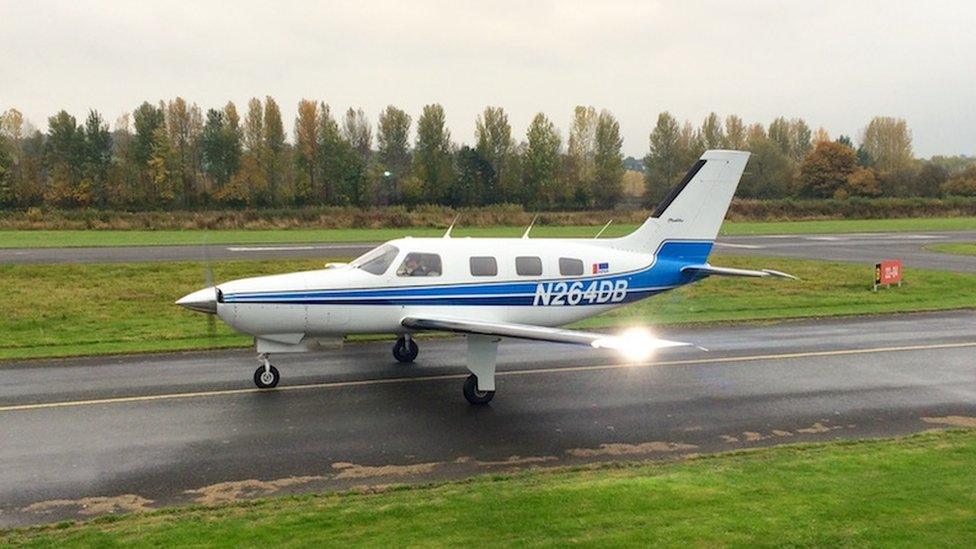
The Piper Malibu N264DB aircraft was taking Sala from Nantes to Cardiff
As flying is an expensive pastime, cost sharing allows pilots to notch up their flying hours while sharing the cost of fuel, landing fees and other expenses with passengers.
The AAIB report said the basis on which Sala was being carried on N264DB "has not yet been established but, previously, the pilot had carried passengers on the basis of 'cost sharing'".
Cost sharing on private flights is allowed in the UK and the report said Mr Ibbotson, of Crowle, North Lincolnshire, had operated these type of flights before.
However, the report added that because the aircraft was US-registered, it was subject to Federal Aviation Administration (FAA) regulations, which meant he could only make the flight legally if he was paying half the operating expenses.
In addition, Mr Ibbotson needed a "bona fide purpose" for making the flight - also known in aviation as "common purpose" - and must dictate when the flight should leave, the report added.
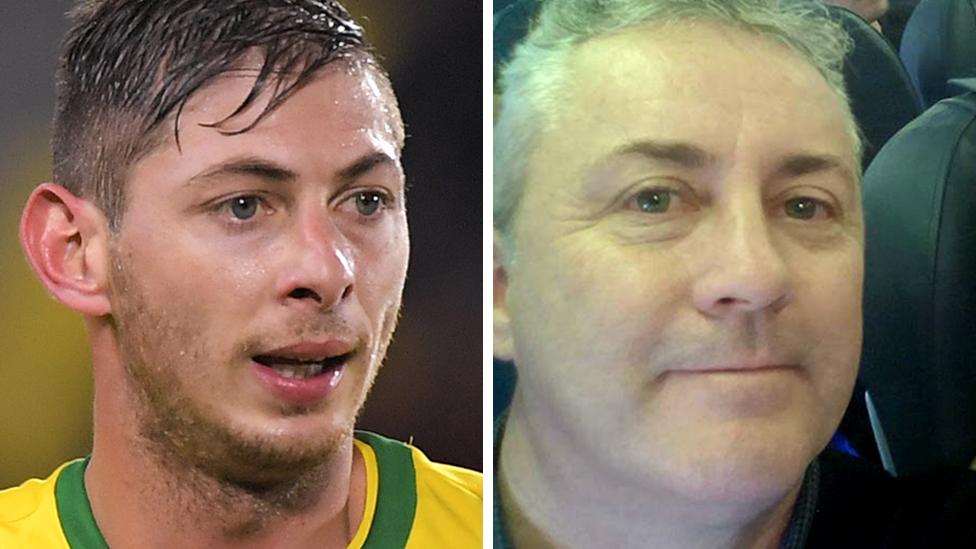
Emiliano Sala (left) was on board a plane being flown by pilot David Ibbotson
It is understood the flight's departure was delayed to allow Sala to say goodbye to his Nantes teammates before he left.
The report said that, on the basis of a cost-sharing flight, it "must not be made for the purpose of merely transporting the passenger".
This is one area the AAIB said needed further investigation.
What else does the report say?
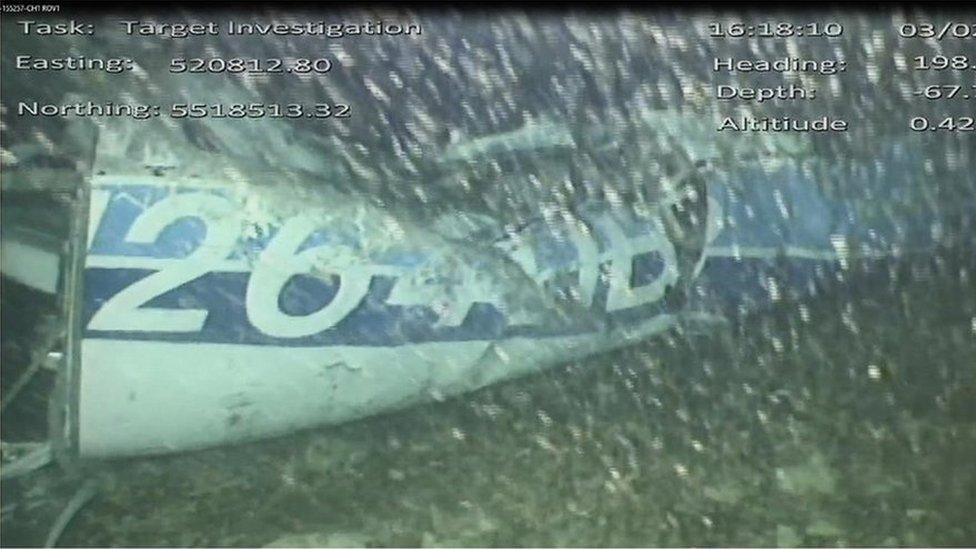
The AAIB released this photograph of the wreckage of the Piper Malibu
The AAIB said the plane was found in three parts on the seabed after a submersible with cameras was sent underwater.
It was "extensively damaged" and the wreckage was held together by electrical and flying control cables, while the engine was disconnected from the cockpit area.
The AAIB said it had been unable to establish how much flying Mr Ibbotson had done recently, as his pilot's licence and logbook had been lost.
Investigators would normally look to establish how many hours a pilot had flown in the preceding 28 and 90 days before a crash.
Mr Ibbotson had approximately 3,700 flying hours and held a private pilot's licence in the UK and US.
What are the next steps?
Air accident investigators will continue to look at all "operational, technical, organisational and human factors" which might have contributed to the crash.
One focus will be further analysis of the radar information to try and understand the final moments of the flight.
Investigators will analyse video from the wreckage in a bid to determine how the aircraft entered the sea.
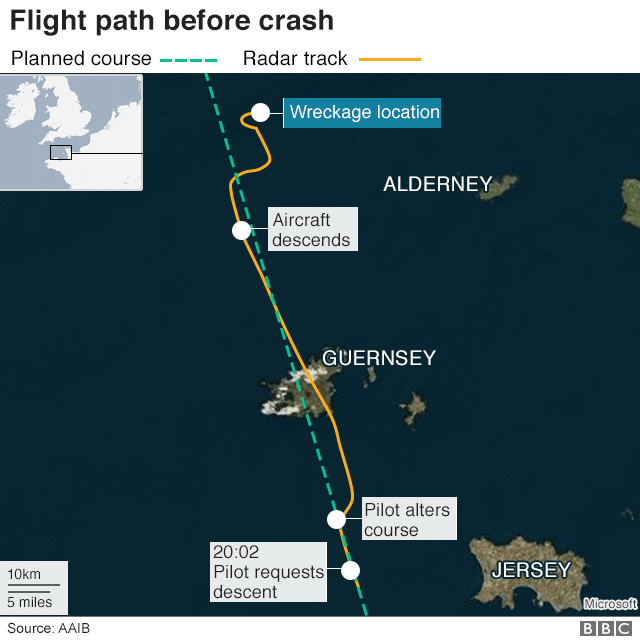
An AAIB spokesman said: "We have gathered evidence from radar, weather reports, video of the aircraft on the seabed and interviews with witnesses.
"Some operational aspects are yet to be determined, such as the validity of the pilot's licence and ratings.
"Our priority now is to go through the evidence, much of which is extensive and complex, so we can piece together what happened between the aircraft being lost from radar and it coming to rest on the sea bed.
"This will help us understand the potential causes of the accident."
A Cardiff City spokesman said: "We welcome further investigation into the accident, which is required to determine precisely what happened, and to ensure changes are made so that this situation never happens again."
The remit of the AAIB, which is a branch of the Department for Transport, is to conduct safety investigations into the cause of aviation accidents without apportioning blame or liability.
- Attribution
- Published20 February 2019

- Published19 February 2019

- Published16 February 2019
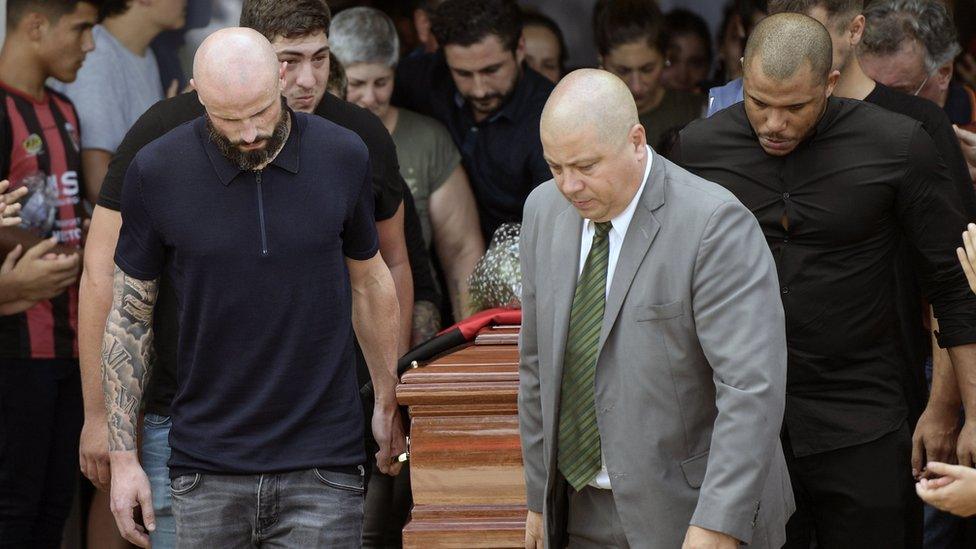
- Published9 February 2019
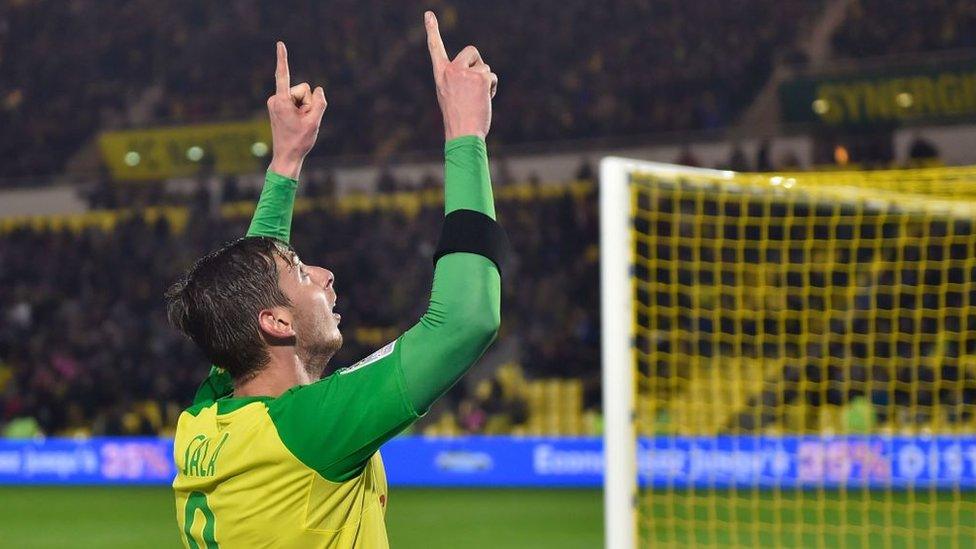
- Published8 February 2019
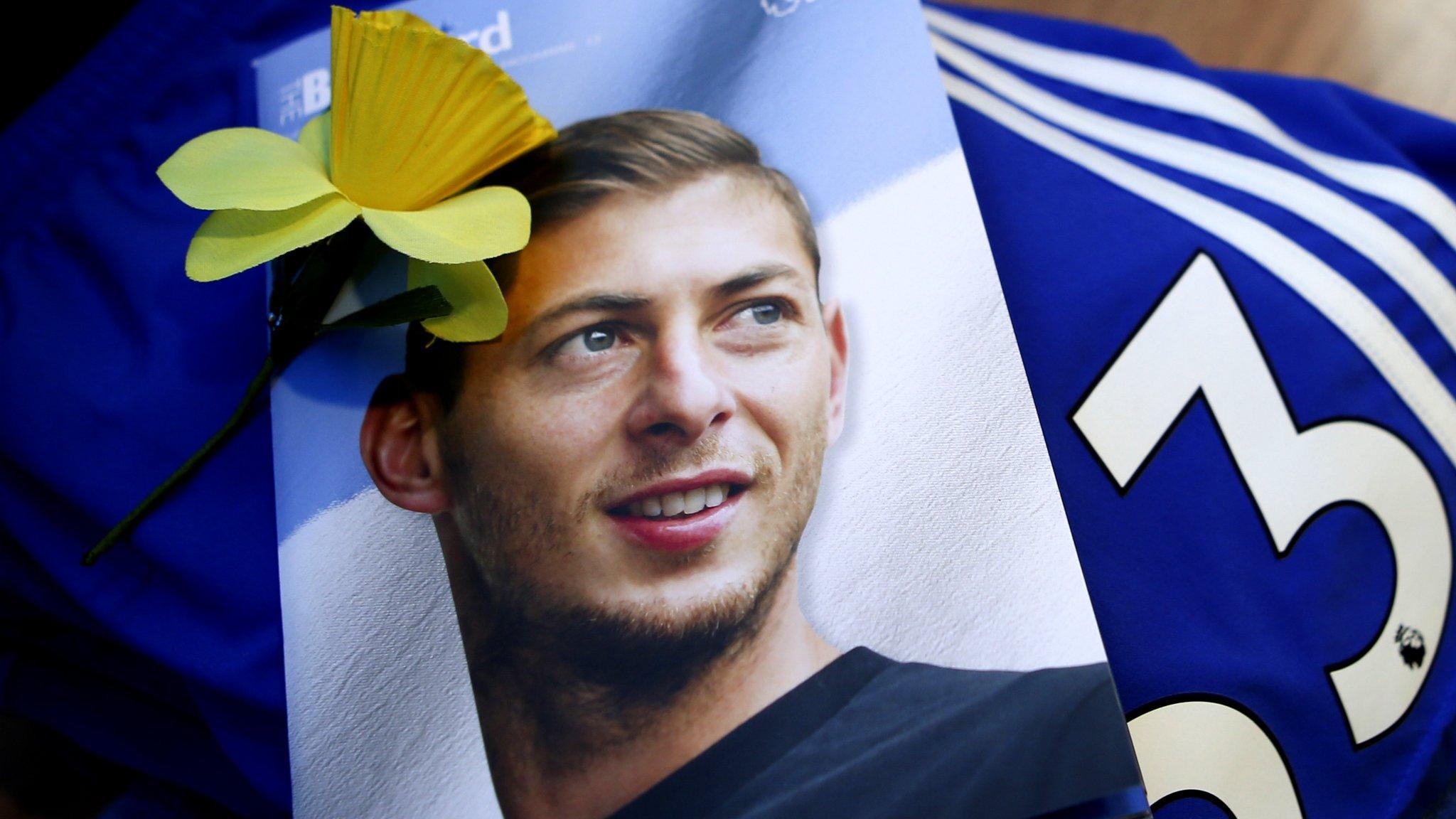
- Published8 February 2019

- Attribution
- Published7 February 2019

- Attribution
- Published7 February 2019

- Published4 February 2019
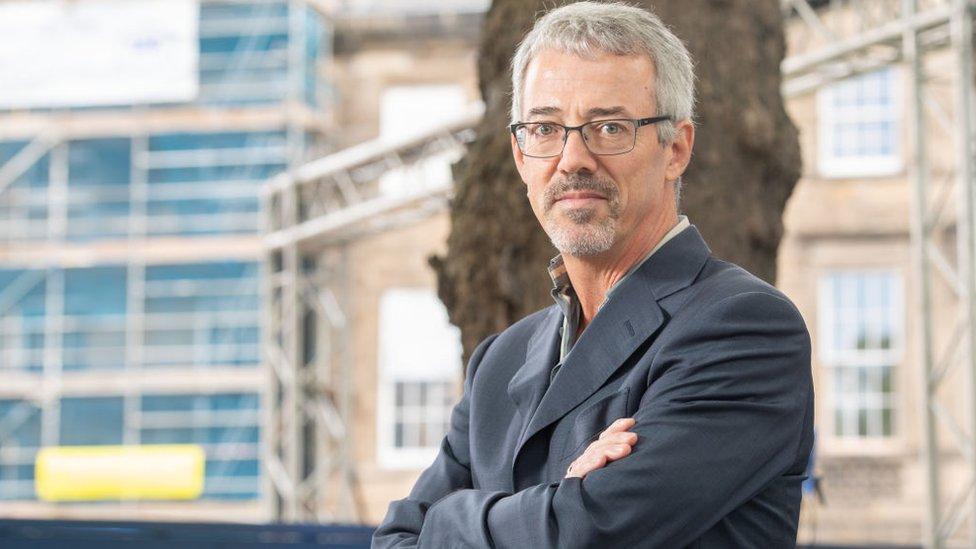
- Published4 February 2019
